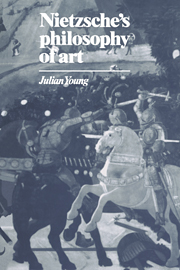The German Aesthetic Tradition
This book, first published in 2002, is a systematic critical overview of German aesthetics from 1750 to the present. It begins with the work of Baumgarten and covers all the major writers on German aesthetics that follow, including Kant, Schiller, Schelling, Hegel, Nietzsche, Heidegger, Gadamer and Adorno. The book offers a clear and non-technical exposition of ideas, placing these in a wider philosophical context where necessary. Such is the importance of German aesthetics that the market for this book will extend far beyond the domain of philosophy to such fields as literary studies, fine art and music.
- Potentially a very successful textbook of a topic of broad cross-disciplinary interest
- Clear, systematic exposition
- No competitors
Reviews & endorsements
"This is a timely, useful, and compelling synthesis of important themes in German philosophical aesthetic thought. Recommended."
-Choice
"What Hammermeister inevitably achieves in this compact, yet wonderfully rich, book is much more than a scholarly overview of an important and difficult historical tradition in aesthetic philosophy."
-Philosophy and Literature
Product details
November 2002Paperback
9780521785549
280 pages
228 × 153 × 17 mm
0.395kg
Available
Table of Contents
- Preface
- Part I. The Age of Paradigms:
- 1. Baumgarten, Mendelssohn
- 2. Kant
- 3. Schiller
- 4. Schelling
- 5. Hegel
- Part II. Challenging the Paradigms:
- 6. Schopenhauer
- 7. Kierkegaard, Nietzsche
- Part III. Renewing the Paradigms:
- 8. Cassirer, Lukács
- 9. Heidegger, Gadamer
- 10. Adorno
- Conclusion
- Notes
- Bibliography
- Index.




